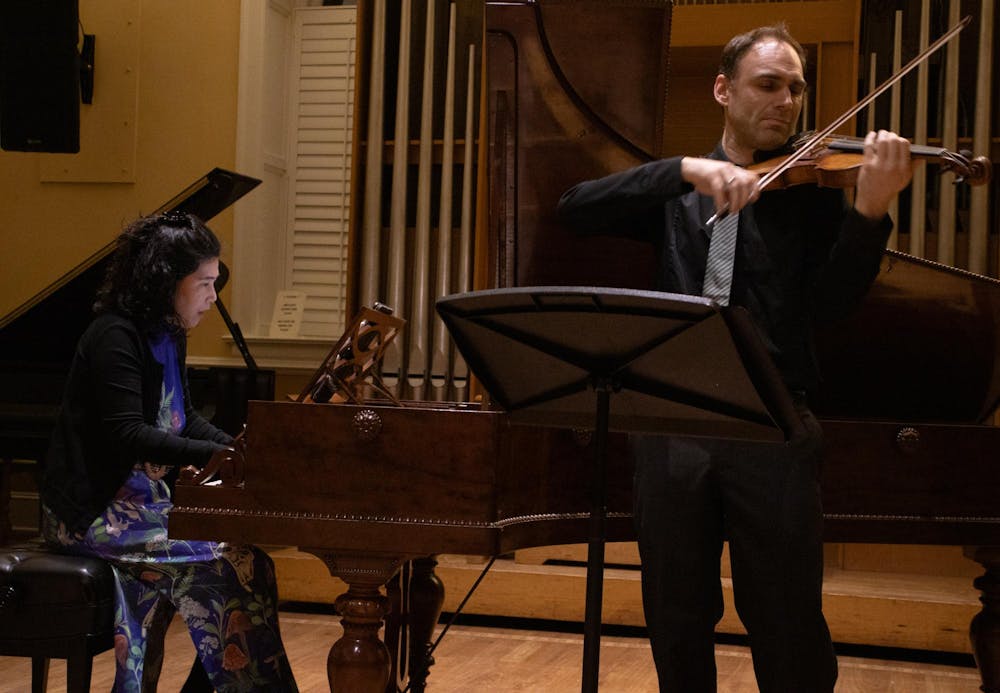Last Friday, on a chilly November evening, the instrumental chamber music of 19th century composers filled UNC's Person Recital Hall, transforming it into a Parisian salon for the night.
With an audience waiting in anticipation, violinist Nicholas DiEugenio and pianist Mimi Solomon swiftly entered the room and began playing their first piece, bringing Pauline Viardot's music to life and setting the stage for a melodious evening.
The Gut Instinct Chamber Music Project consists of three free concerts in Person Recital Hall that spotlight UNC's historical instrument collection alongside artists who bring the performances of 19th century chamber music to modern audiences. The second concert, on Friday, featured DiEugenio, an associate professor of music, and his wife, Solomon, a lecturer at UNC.
“I think the first thing is that we just really wanted to share the instruments and bring the sound of the instruments to life and to the ears of others in the community and at UNC,” DiEugenio said.
As part of UNC's historical instrument collection, the concert featured the 1843 Pleyel piano, which is housed at Person Recital Hall and was gifted to the university by Tom Kenan. The Pleyel piano is said to have been used by Frédéric Chopin at the time of his career as a composer and pianist, contributing to Solomon's historically-informed performance.
Solomon said it was rewarding to touch an instrument likely touched by someone like Chopin, experiment with it and use it to share music with students and members of the UNC community.
“I loved the solo Chopin [piece] that she played because as a pianist that was really cool that she highlighted the music that Chopin could have potentially played on that specific piano,” Corinne Lombardo, a freshman music and math double major who attended the concert, said.
The Gut Instinct Chamber Music Project is also committed to highlighting the lesser-known works of female composers and people in their artistic circles. Viardot, the featured female composer of the night, was also a singer and pianist who was known for being social and was important in mid-19th century Parisian society.
“I feel like a lot of people can relate to some of these women composers, and it just allows a lot of people to relate to classical music in a way that maybe they can't if we're just sticking to the standard Western repertoire,” Lombardo said.



